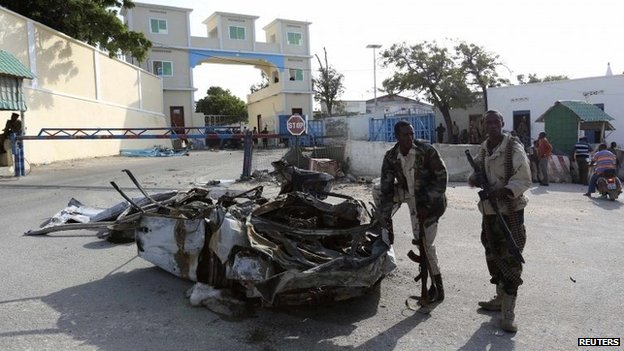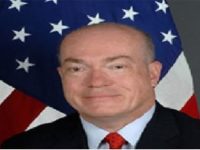 The US Embassy says Ghana’s security is good enough to deal with any possible threat posed by two former terror suspects whose presence in Ghana have caused national controversy.
The US Embassy says Ghana’s security is good enough to deal with any possible threat posed by two former terror suspects whose presence in Ghana have caused national controversy.
Information Officer Sarah Stealy told Joy FM’s Top Story Tuesday the decision to transfer the Yemini nationals to any country is based on an assessment that “any threat they pose could be mitigated by the receiving country”
She explained the threat posed by the two is ‘small enough’ and ‘low enough” for Ghana to handle.
“We anticipate that there wouldn’t be any problems with their stay in Ghana” she stressed.
Sarah will not speak to a classified 2007 document from US which assessed Mahmud Umar Muhammad Bin Atef and Khalid Muhammad Salih Al-Dhuby as dangerous.
The December 28, 2007 document leaked by the New York Times newspaper and UK Telegraph revealed Bin Atef “served as a fighter in the UBL’s 5th Arab Brigade” and traveled to Northern Afghanistan to fight on the front lines in Konduz.
Bin Atef has also led a detainee’s unrest in Guantanamo Bay and once threatened to slit the throat of US citizens if ever released.
But Sarah says the US as a long-standing policy does not comment on documents allegedly leaked. She pointed out a 2010 assessment which is publicly displayed on its website, and which shows the two detainees were qualified for transfer.
Ghana and US taskforce unanimously agreed that Bin Atef and Salih Al-Dhuby are good to stay in Ghana for two years.
If there is any possible threat, Ghana has “the ability and security measures in place” to neutralize this threat. She also explained this conclusion was arrived at after Obama ordered a “comprehensive inter-agency review” between 2009 and 2010.
President John Mahama has already described them as low-level operatives who played “no operational role in Afghanistan”.
She stressed President Barack Obama has promised to close down Guantanamo Bay because it has “a brochure for terrorist”, he said at his last State of the Nation Address yesterday in Congress.
By US law no detainee is permitted to stay in the country after release. But the detainee is cleared to live in any other country the US considers an ally.





